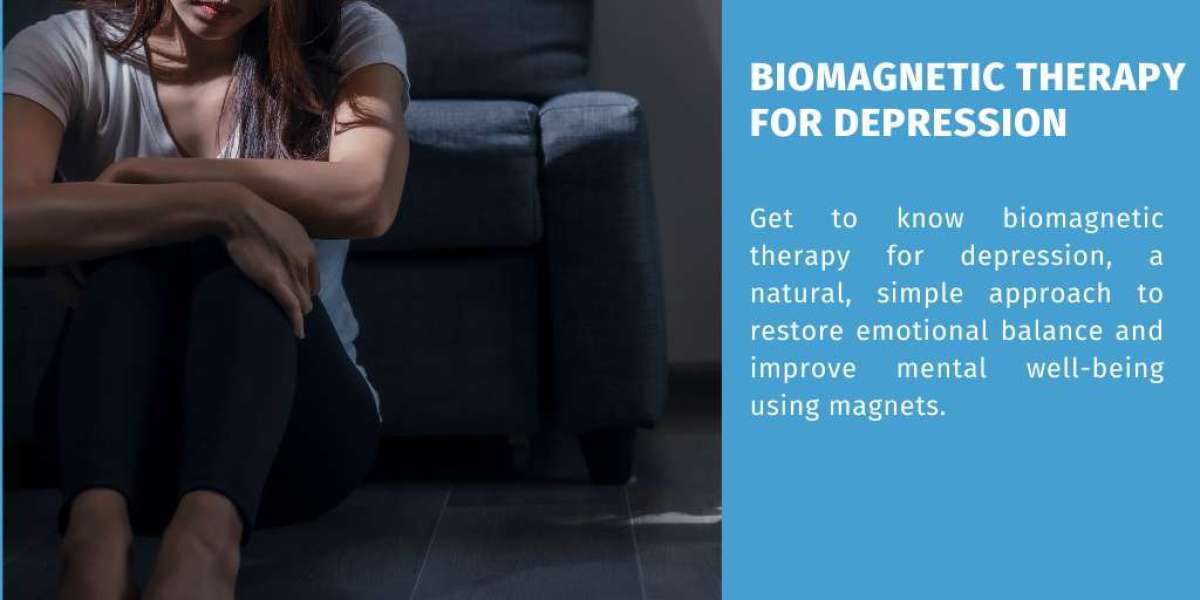Exploring Biomagnetic Therapy as a Potential Treatment for Depression
Depression affects millions of people worldwide, and while traditional treatments like medication and psychotherapy are effective for many, some individuals continue to search for alternative or complementary approaches. One such method gaining attention is biomagnetic therapy, also known as magnetic therapy or magnet therapy. This non-invasive technique uses magnetic fields to potentially influence the body's biological processes and alleviate symptoms of depression.
The concept behind biomagnetic therapy stems from the idea that our bodies have an electromagnetic field that can be influenced by external magnetic forces. Proponents of this therapy believe that applying magnets to specific areas of the body can help restore balance to this field, potentially improving various health conditions, including mental health disorders like depression.
How Does Biomagnetic Therapy Work?
The exact mechanisms of biomagnetic therapy are not fully understood, but several theories attempt to explain its potential effects:
1. Improved blood circulation: Magnets may enhance blood flow, potentially increasing oxygen and nutrient delivery to brain tissues affected by depression.
2. Ionic balance: The therapy might influence the movement of ions across cell membranes, potentially affecting neurotransmitter function.
3. Melatonin production: Some research suggests that magnetic fields could stimulate the production of melatonin, a hormone involved in regulating mood and sleep patterns.
4. Stress reduction: The application of magnets may have a calming effect on the nervous system, potentially reducing stress and anxiety associated with depression.
Application Methods
Biomagnetic therapy for depression can be applied in various ways:
1. Static magnets: Small magnets are placed on specific points of the body, often following principles similar to acupuncture.
2. Pulsed electromagnetic field therapy (PEMF): This involves using devices that generate pulsating magnetic fields, which are applied to the body or head.
3. Transcranial magnetic stimulation (TMS): While not typically considered "biomagnetic therapy," TMS uses powerful magnetic fields to stimulate specific brain regions and is an FDA-approved treatment for depression.
Research and Evidence
While anecdotal reports suggest potential benefits, scientific evidence supporting biomagnetic therapy for depression is limited and mixed. Some small-scale studies have shown promising results, reporting improvements in mood, sleep quality, and overall well-being among participants. However, larger, well-controlled clinical trials are needed to establish the therapy's efficacy and safety conclusively.
It's important to note that the placebo effect may play a significant role in perceived improvements, as is often the case with alternative therapies. Additionally, the lack of standardization in treatment protocols and the variety of magnetic devices used can make it challenging to draw definitive conclusions from existing research.
Potential Benefits and Risks
Proponents of biomagnetic therapy for depression cite several potential benefits:
1. Non-invasive and painless
2. Minimal side effects compared to some medications
3. Can be used in conjunction with other treatments
4. Potentially helpful for treatment-resistant depression
However, it's crucial to consider potential risks and limitations:
1. Lack of regulation and standardization in the field
2. Possible interactions with medical devices like pacemakers
3. Risk of delaying or forgoing proven treatments
4. Potential financial burden, as most insurance plans don't cover biomagnetic therapy
Consulting Healthcare Professionals
If you're considering biomagnetic therapy for depression, it's essential to consult with a qualified healthcare professional, preferably one experienced in both conventional and alternative treatments. They can help you weigh the potential benefits and risks, ensure the therapy doesn't interfere with any existing treatments, and monitor your progress.
It's crucial to remember that biomagnetic therapy should not replace proven treatments for depression, such as psychotherapy and medication. Instead, it may be considered as a complementary approach to enhance overall well-being and potentially support traditional treatment methods.
Conclusion
Biomagnetic therapy for depression represents an intriguing area of exploration in the field of alternative medicine. While some individuals report positive experiences, the scientific evidence supporting its efficacy remains limited. As research continues, we may gain a better understanding of how magnetic fields interact with our bodies and whether they can offer meaningful benefits for those struggling with depression.









